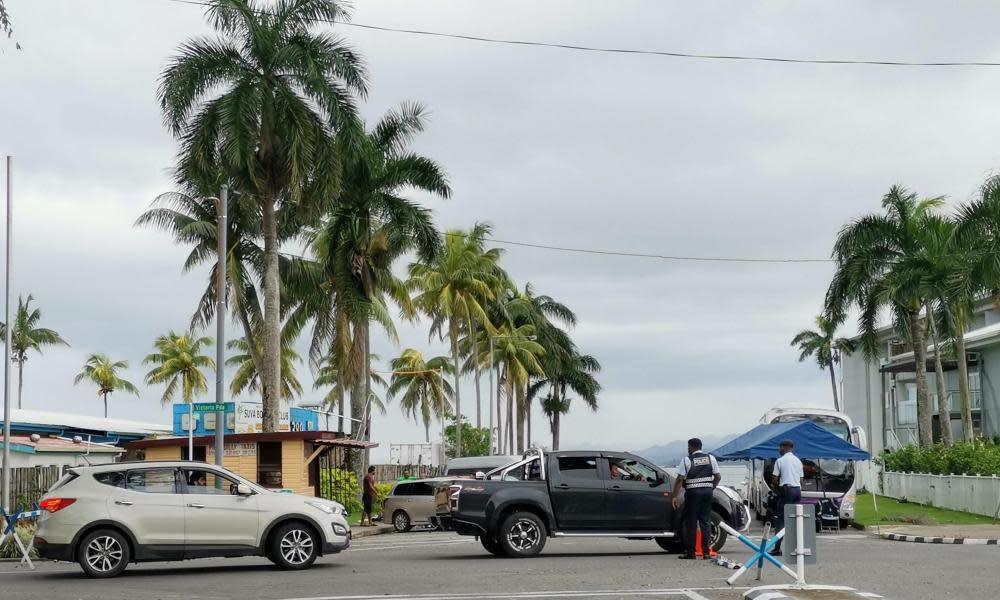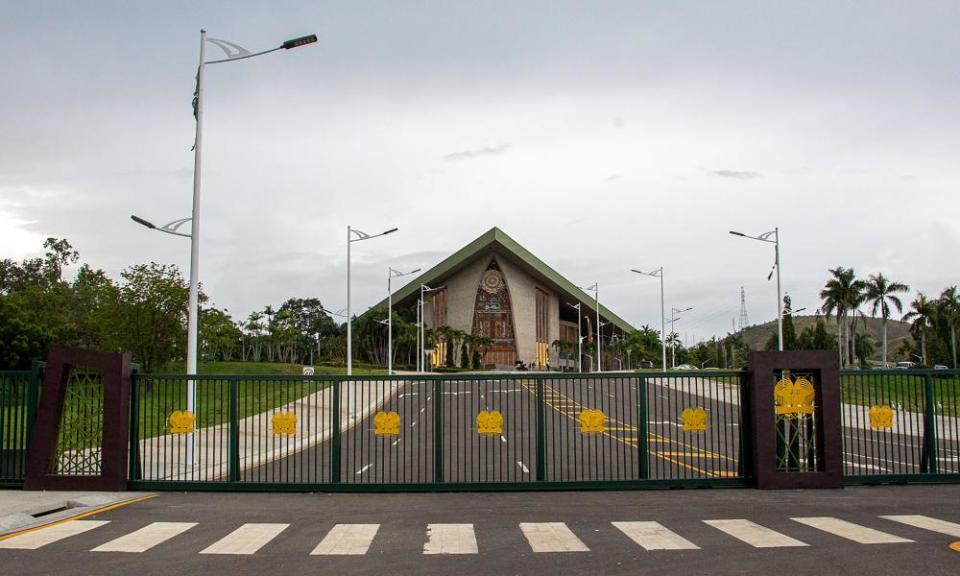We can't allow Pacific leaders to use coronavirus as a cover for authoritarianism

“Never let a good crisis go to waste.” Across the Pacific, leaders are holding fast to the old political maxim. Some, even, seem happy to have the Covid-19 crisis around.
Even in countries where there is no actual public health emergency, governments are using the threat of the virus as cover for overriding or diluting basic democratic principles.
Rather than pulling out all the stops to save their flailing economies, leaders are exploiting extraordinary emergency powers to secure themselves in positions of increasing impunity.
Related: 'Job-killer of the century': economies of Pacific islands face collapse over Covid-19
In June this year, Papua New Guinea’s government railroaded the National Pandemic Act 2020 through parliament. The provisions it contains make scant reference to actual public health issues.
But it begins with a list of constitutional rights and freedoms it may constrain, including freedom of expression, freedom of association, and protection from arbitrary search and seizure.
It also removes checks and balances on government spending, raising concerns that funds given to the government will not receive necessary scrutiny.
Police Minister Bryan Kramer recently received a report of an audit investigation relating to claims that 23m Kina (AU$9.2m), allocated for the country’s Covid-19 response, had been misspent on hire cars and media consultants.
Kramer told a press conference that 21m Kina (AU$8.5m) had already been spent, and that it had not been mismanaged, though offered no evidence to support this assertion. The auditor’s report has not been made public.
It is hard not to believe that emergency provisions and powers are being used for political purposes or to exert social control.
In Fiji, no state of emergency has been imposed. But there have been serious restrictions, including lockdowns and curfews, and in their wake, a large number of arrests, many of them questionable.
In Suva, a crisis at the University of the South Pacific saw rallies and meetings of staff and students in support of the university’s Vice-Chancellor, who blew the whistle on alleged mismanagement and corruption.
University librarian Elizabeth Fong was questioned by the Fiji police, purportedly in relation to breaches of Covid-19 regulations, but her interrogation was widely interpreted as an act designed to intimidate staff and students supporting the vice-chancellor.

Vanuatu’s President last week invoked the Disaster Risk Management Act, extending the country’s Covid-19 state of emergency until the end of the year.
The Act has been invoked repeatedly by two successive governments, but
Vanuatu’s constitution requires that a state of emergency extension may
only be made by Parliament, and only for three months.
The state of emergency has never been debated in parliament.
“We have entered a realm where people are content to sit by as policy is used to destroy our hard fought for freedoms,” opposition MP John Salong wrote on social media.
“The state of emergency has become a tool to encroach [on] our constitutional freedoms.”
On the same day the state of emergency of Covid-19 was extended, Vanuatu’s state of emergency for cyclone Harold was also extended until 9 August.
The pandemic has been trotted out to excuse a derisory response to April’s category five Cyclone Harold, which severely impacted the lives of over 100,000 Ni-Vanuatu.
Relief and rescue efforts lagged first weeks, and now months, behind schedule.
Disaster response officials only allowed outside assistance after dire reports began to emerge from disaster-stricken islands.
Complacency appears to be endemic.
Only weeks after the borders closed, the finance department announced a bailout program that was, per capita, one of the most generous in the Pacific.
Few have benefited so far though.
Dozens of distressed companies have complained that they have applied for relief but have not yet received a cent.
No coherent economic recovery plan has been developed to follow the initial bailout, and people aren’t sure how much longer they can hold on.
One prominent Ni-Vanuatu business owner told the Guardian, “the government has us in a holding pattern, and we’re running out of fuel”.
But the endless emergency hasn’t stopped the Vanuatu government from announcing a jaw-dropping 10-day holiday to celebrate 40 years of independence, ordering all non-essential businesses to close, at an estimated cost to the economy of US$9m every day.
In Samoa, state of emergency provisions have been used to ban nearly all trading on Sundays.
The Samoa Observer asked whether the prime minister Tuilaepa Sailele Malielegaoi was using these powers to indulge his own religious convictions.
The PM announced earlier this month he had instructed the attorney-general’s department to commence drafting legislation to entrench Sunday closures after the state of emergency ends.
His government is also considering banning facebook from the entire country.
The Pacific has, so far, escaped the very worst of the death and disease wreaked across the globe by Covid-19.
Related: Pacific nations face wider health crisis as systems focus on stopping Covid-19
But the economic impacts of this pandemic on the countries of the Pacific are huge and their ramifications will be felt for years.
Lives and livelihoods should be top priorities for Pacific island governments. What we are seeing instead looks more like growing comfort with recently acquired special powers that are being used to limit accountability and the kind of scrutiny we expect in democratic nations.
Pacific islanders might find that this pandemic may have largely spared them, and infected their democracies instead.


